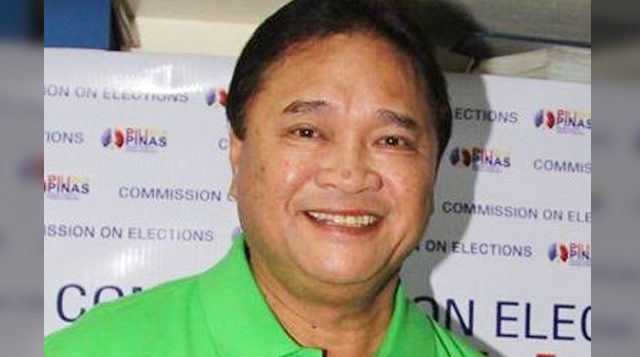SUMMARY
This is AI generated summarization, which may have errors. For context, always refer to the full article.

MANILA, Philippines – After more than two decades in power, he is mayor no more. But he holds the distinction of being the longest-serving mayor in the country.
Mabalacat City Mayor Marino “Boking” Morales stepped down from his post after the Department of the Interior and Local Government (DILG) served him a cease and desist order on June 19, Monday.
Mayor since 1995, Morales has managed to get around the constitutional and Local Government Code limit of 3 consecutive terms for local officials.
How did he pull it off?
Morales served his first 3 terms from 1995 to 2004. He was able to run for a “fourth term” after losing an election protest seeking to invalidate his 2001 victory.
The Commission on Elections (Comelec) ruling came only in 2004, during the last few weeks of his term. He then used this as basis for running again in 2004, arguing that his 2001-2004 should reset his tenure as mayor. (READ: Mayor for 21 years wins again)
He held the position ever since winning the 2004, 2007, and 2010 elections.
In 2013, he went around the 3-term limit again after Mabalacat was converted into a city in 2012 by virtue of Republic Act 10164.
He argued that he served only as a “hold-over mayor” in his 2010-2013 term, and that 2013 was only his first term as city mayor, having served only as municipal mayor before.
He won as “city” mayor in 2013 then did an encore in 2016.
The opposition that called for his recent dismissal began on January 4, 2016 when Pyra Lucas, losing mayoral candidate in 2013, filed the disqualification case against Morales for violating the 3-term rule.
In January 2016, elected Vice Mayor Christian Halili sought the cancellation of Morales’ certificate of candidacy (COC), then demanded that he be proclaimed mayor under the rule of succession.
In May 2016, Crisostomo Garbo, runner-up to Morales in the 2016 elections, filed a motion for a leave to intervene, and alleged that Morales was “ineligible” also on the grounds of Morales already pushing the 3-term limit.
On August 3, 2016, the Commission on Elections (Comelec) First Division granted the Lucas petition disqualifying Morales from the 2016 elections.
Morales then sought reconsideration and assailed the cancellation of his COC, arguing that the petition was filed out of time and that it lacked a certification against forum shopping.
On May 26, 2017, the Comelec en banc ruled for the cancellation of Morales’ COC with a vote of 7-0, affirming the First Division’s August 2016 resolution and canceling all votes cast for Morales in the 2016 polls.
The Comelec en banc then issued on June 8 a writ of execution directing the DILG to implement the poll body’s resolutions ordering Morales to “cease and desist from performing the functions as mayor of Mabalacat City.”
With this development, Mabalacat City will now have Garbo as its next mayor since he obtained the second-highest number of votes in the 2016 polls.
After officially receiving the order from DILG Provincial Director Myrvi Fabia on Monday, June 19, Morales ceased holding office and performing his functions as city mayor that same day.
Fabia has directed Vice Mayor Christian Halili to take charge as Mabalacat’s acting mayor until Garbo’s proclamation. – Rappler.com
Add a comment
How does this make you feel?
There are no comments yet. Add your comment to start the conversation.